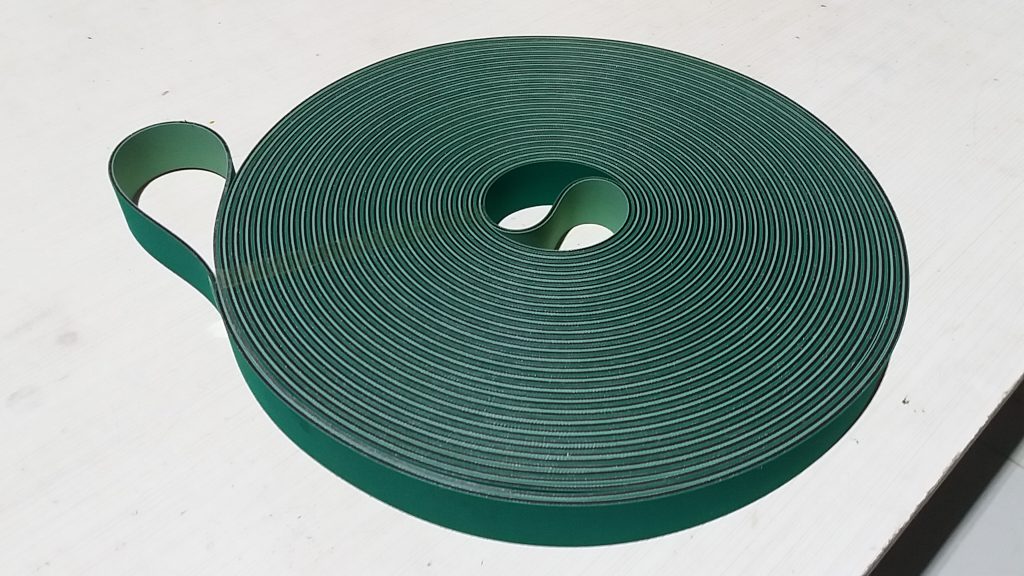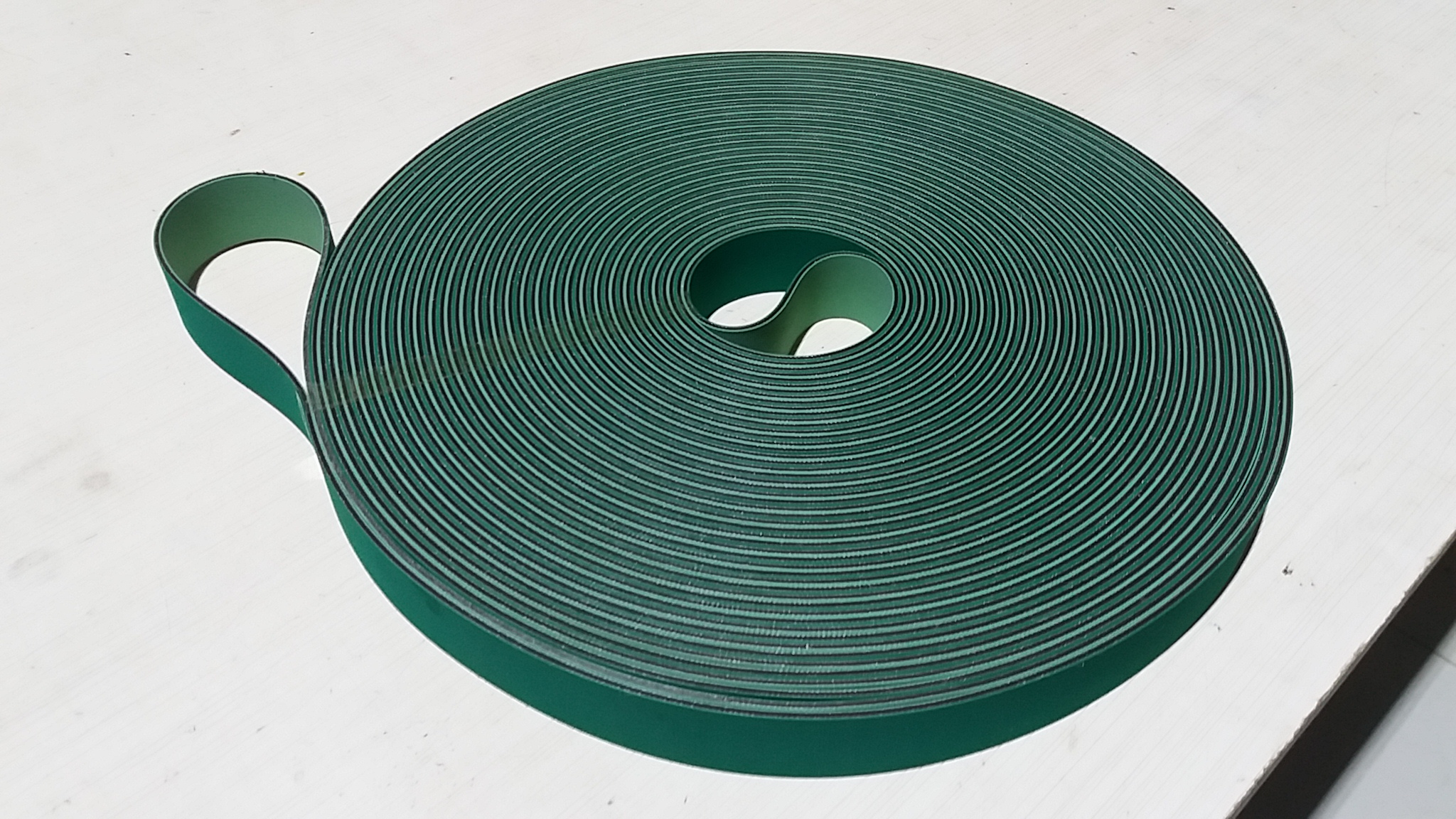
## I. Overview of Twin Twister Drive Belt
The twin twister drive belt, commonly known as the “dragon belt,” is a core transmission component in textile machinery twin twisters. As a high-performance flat belt, the dragon belt plays a critical role in transmitting power from the main motor to individual spindles. Its performance directly affects the machine’s operational efficiency, energy consumption, and product quality.
## II. Structural Features of Dragon Belts
Modern twin twister dragon belts typically adopt a multi-layer composite structure:
1. **Tensile Layer**: Composed of high-strength polyester cords or aramid fibers, providing necessary longitudinal tensile strength
2. **Friction Layer**: Made of special rubber or polyurethane materials to ensure optimal friction with drive pulleys
3. **Elastic Layer**: Intermediate cushioning layer that absorbs vibration and shock
4. **Wear-Resistant Layer**: Specially treated surface layer to enhance abrasion resistance and service life
This composite structure gives the dragon belt high strength, excellent elasticity, and superior frictional properties, meeting the demands of high-speed transmission.
## III. Key Technical Parameters
1. **Dimensional Accuracy**: Width tolerance typically controlled within ±0.5mm, thickness deviation not exceeding ±0.2mm
2. **Tensile Strength**: High-quality dragon belts can achieve breaking strength of 200-300N/mm²
3. **Elongation Rate**: Operational elongation generally maintained within 1-2%
4. **Friction Coefficient**: Dynamic friction coefficient usually between 0.6-0.8
5. **Temperature Resistance**: Can operate stably in environments ranging from -20℃ to +80℃
6. **Service Life**: Premium products can achieve 18-24 months of continuous operation
## IV. Key Considerations for Belt Selection
1. **Machine Compatibility**: Different twin twister brands have specific requirements for belt specifications
2. **Speed Considerations**: High-speed models (8000-12000rpm) require low-elongation products
3. **Environmental Factors**: High-temperature and high-humidity environments demand anti-mold varieties
4. **Load Characteristics**: Select appropriate width and strength based on spindle quantity
5. **Energy Efficiency Requirements**: Low-friction coefficient products can reduce energy consumption by 3-5%
## V. Installation and Maintenance Standards
**Proper Installation Procedure:**
1. Clean all pulley contact surfaces
2. Adjust tensioning device to relaxed position
3. Install belt starting from motor end
4. Apply even tension to specified level (typically 150-200N)
5. Conduct test run and check for tracking issues
**Routine Maintenance Points:**
– Weekly tension checks and adjustments
– Monthly belt surface cleaning to remove lint accumulation
– Quarterly wear inspection and thickness measurement
– Avoid contact with oils and chemicals
– Immediate replacement upon discovery of cracks or delamination
## VI. Common Issues and Solutions
1. **Tracking Problems**: Check pulley alignment and adjust tension uniformity
2. **Abnormal Wear**: Inspect pulley surface condition and remove foreign objects
3. **Excessive Vibration**: Rebalance tension and check joint quality
4. **Slippage**: Appropriately increase tension and clean contact surfaces
5. **Premature Failure**: Verify load matching and eliminate installation damage
## VII. Technology Development Trends
1. **Material Innovation**: Application of carbon fiber reinforced composites
2. **Structural Optimization**: Asymmetric design to improve transmission efficiency
3. **Intelligent Features**: Embedded sensors for condition monitoring
4. **Eco-Friendly**: Use of recyclable materials
5. **Extended Lifespan**: Target service life exceeding 30 months
## VIII. Current Market Application Status
With the intelligent upgrading of the textile industry, performance requirements for dragon belts will continue to increase. Future products will develop toward higher strength, lower energy consumption, and longer service life, while system compatibility with complete machines will become a key area of technological competition.
